CSAN’s Migration Alliance held its inaugural meeting on 09 March 2023, at the London Jesuit Centre, where we were joined by members from across our network and the Catholic Bishops’ Conference of England & Wales (CBCEW).
We have seen many developments and policy changes in the field of migration in recent years, with widespread concern amongst civil society organisations about the UK’s failing asylum system and inadequate support available for migrants and refugees, but also for organisations supporting them.
CSAN is a network of 54 member charities, many of whom work in the field of migration, supporting people seeking asylum, refugees, and migrants, including survivors of human trafficking and modern slavery. This alliance creates an opportunity for CSAN members to unite and share best practices, whilst discussing the challenges they face and working collaboratively to find solutions. Reflecting on Pope Francis’ words that ‘every migrant has a name, a face, and a story’, the alliance allows CSAN and members to ensure we are upholding the human dignity of those we support through our advocacy and outreach, acting out the four verbs as put forth by Pope Francis as a response to migrating persons: to welcome, to protect, to promote and to integrate.[1]
Guide to Refugee Resettlement
CSAN officially launched its Guide to Refugee Resettlement in England & Wales, providing insight on resettlement programmes and sharing stories of support from our members.
Refugee resettlement is an essential support pathway for refugees and allows the UK to support countries of asylum in the Global South which host the majority of the world’s refugee population. It is important to understand that resettlement is NOT a substitute for asylum, especially in light of recent policies, and we hope the guide clarifies this.
The guide provides tips on hosting and many useful links for those interested in community sponsorship or individual hosting programmes, whilst raising awareness about exploitation and modern slavery, providing an opportunity for all to learn more about the issues affecting migrants and refugees.
The guide acts as both an educational resource and a call-to-action, noting local Caritas diocesan agencies and their related projects with which individuals and communities can get involved. We encourage everyone to disseminate the guide widely amongst their parishes and networks to assist in upholding the human dignity of migrants and refugees, through advocacy and support programmes as we navigate the current hostile environment created and perpetuated by the Government.
Spotlight
The alliance meeting provided an opportunity for members to discuss their work and learn about projects implemented across the country, including community sponsorship groups and the Homes for Ukraine Scheme. For our inaugural session, we shone a spotlight on the work of the Jesuit Refugee Service (JRS) and Caritas Shrewsbury, who spoke of their individual experiences with asylum accommodation.
JRS has written on the dehumanising impact of detention for those people seeking asylum, expressing their concerns at the conditions experienced there, but also at the increasing use of detention in the early stages of asylum processing. Sophie Cartwright, Senior Policy Officer at JRS, spoke to members about the ghettoization of the asylum system, noting the Government’s ongoing attempts to repurpose army barracks into asylum accommodation, and the harm such accommodation causes to individuals who have fled war and persecution, exposing many to the risk of retraumatisation. This is in addition to the poor conditions they are subjected to, and the lack of management and support extended to them. JRS emphasised the need for a supportive environment, calling for safe and dignified accommodation in communities and we welcome their timely report on Napier Barracks.
Our second spotlight was on Caritas Shrewsbury, for whom we wished to highlight the work they have undertaken in supporting resettled Afghan families in hotels in the Manchester area. They have been recognised for their wraparound support, ensuring care for both adults and children. They spoke of the lack of organisation by the authorities to support receiving hotels and communities in their welcoming of the families, and how they were able to step into the void to ensure families received essential goods on arrival. The action taken by Caritas Shrewsbury, where they sought together with the community in the initial stages to ensure sufficient donations for the resettled Afghans, was vital in creating a welcoming environment, and was recognised and appreciated as such by the new residents.
“The donations made a positive difference in our first few weeks. Feeling uncertain about our future in Manchester, we felt a weight lifted off our shoulders when the vans arrived with bags of donations. The VCSE (voluntary, community and social enterprises) response made us feel welcome in this time of difficulty.”
[Male Afghan resident supported by Caritas Shrewsbury].
“I recently got a support worker job at Manchester City Council. This was only possible thanks to the support of the charities in the hotel who encouraged me to volunteer first & then become a support worker. I now work across all 3 hotels and can do my part to give back.”
[Female Afghan resident supported by Caritas Shrewsbury]
Hotel accommodation is not ideal for families as a long-term housing solution and can greatly impact their mental wellbeing and overall community integration. Caritas Shrewsbury worked tirelessly to ensure their involvement in public holidays and religious celebrations, with targeted activities for Christmas, Easter, and Eid, including the Afghan celebration of Nowruz (Persian new year celebrated widely across Afghanistan).
Mona Moussa, Refugee Service Manager at Caritas Shrewsbury, spoke of the challenges related to long-term hotel accommodation and the difficulties in acquiring affordable housing for the resettled families, whilst highlighting the importance of their outreach activities to ensure ongoing support for all residents as they learn English, find employment, and integrate into their new communities.
Love the Stranger
The Department for International Affairs at the CBCEW published their new document on the Catholic response to migrants and refugees, titled Love the Stranger, on 14 March, but the CSAN network was provided an advance copy and that was the focus of our afternoon session
Bishop Paul McAleenan, Lead Bishop on Migration presented the document, along with Liam Allmark, Senior Policy and Research Analyst at CBCEW. Bishop Paul, who was also joined by James Abbott, Director of Communications at CBCEW, spoke of his experiences with refugees and migrants, highlighting the importance of Love the Stranger given the current political climate.
Love the Stranger applies Catholic Social Teaching to the topic of migration, outlining 24 principles which include recognising the right to migrate, encouraging safe routes of asylum and defending the human dignity of all migrants, whilst calling on the Government to fulfil their international obligations, and for the Church to continue to welcome migrants and refugees, as outlined in Scripture.
We had not planned for the publication of the Government’s Illegal Migration Bill, but its publication the day before the inaugural session of the Migration Alliance emphasised the importance of the alliance and of collaborative working across the network. It gave extra weight to the presentations we heard and in particular demonstrated the importance of Love the Stranger, as well as its timely publication, to allow for the Catholic community to act on their faith to advocate for refugees and migrants, speaking out against unfair and inhumane policies.
Alessandra Sciara, Senior Policy Officer and Public Affairs Manager at St Vincent de Paul Society (SVP), provided insight on one such policy: the streamlined asylum processing model, a new processintroduced in February which issues legacy asylum seekers with questionnaires in place of an in-person interview. Whilst this measure attempts to address the backlog, it fails to consider the real-life impact of this on those seeking asylum. There are many frontline organisations within the CSAN network who provide advice and outreach support to refugees and who will be impacted by the new policy but are committed to understanding the changes and adapting accordingly, to ensure those affected in their communities receive the necessary guidance to support their asylum processes.
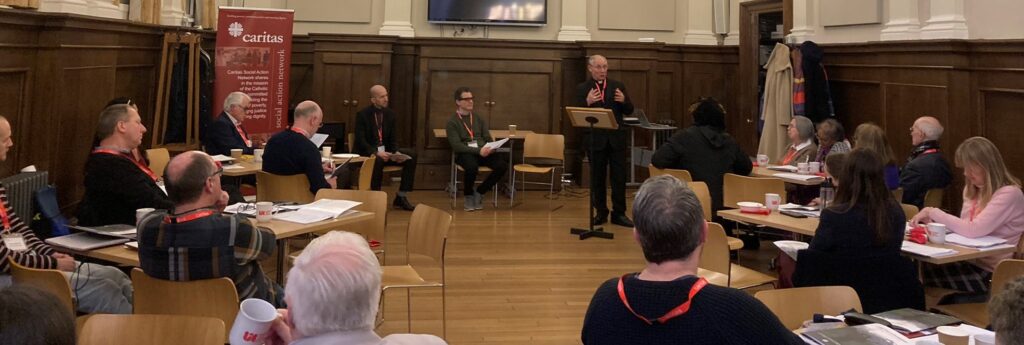
Call-to-Action
The inaugural meeting of the Migration Alliance was a resounding success and we received very positive feedback from members who learned a great deal from the network about emerging policies and best practices. Attendees shared their appreciation for the opportunity to discuss challenges facing the sector and to consider how we may collaboratively overcome them.
Love the Stranger has provided a vital foundation for our work going forward and despite the Government’s attempts to curtail the rights of migrants and refugees, we are hopeful the Catholic community will rise to the challenge and speak out for fair and humane policies which uphold the human dignity of all migrants and refugees.
We have published a call-to-action in response to Love the Stranger, to provide guidance for individuals and communities wanting to learn more about the issues facing migrants and refugees in the UK and how to get involved.
CSAN’s Guide to Refugee Resettlement also complements Love the Stranger and is a further call-to-action, identifying opportunities for individual and community involvement in the sponsorship and hosting of refugees, as well as identifying local diocesan projects and opportunities for involvement.
CSAN looks forward to working closely with members and the wider Catholic community to promote Love the Stranger and continue to act on the four verbs: to welcome, to protect, to promote and to integrate.[1]
[1] https://www.vatican.va/content/francesco/en/messages/migration/documents/papa-francesco_20170815_world-migrants-day-2018.html



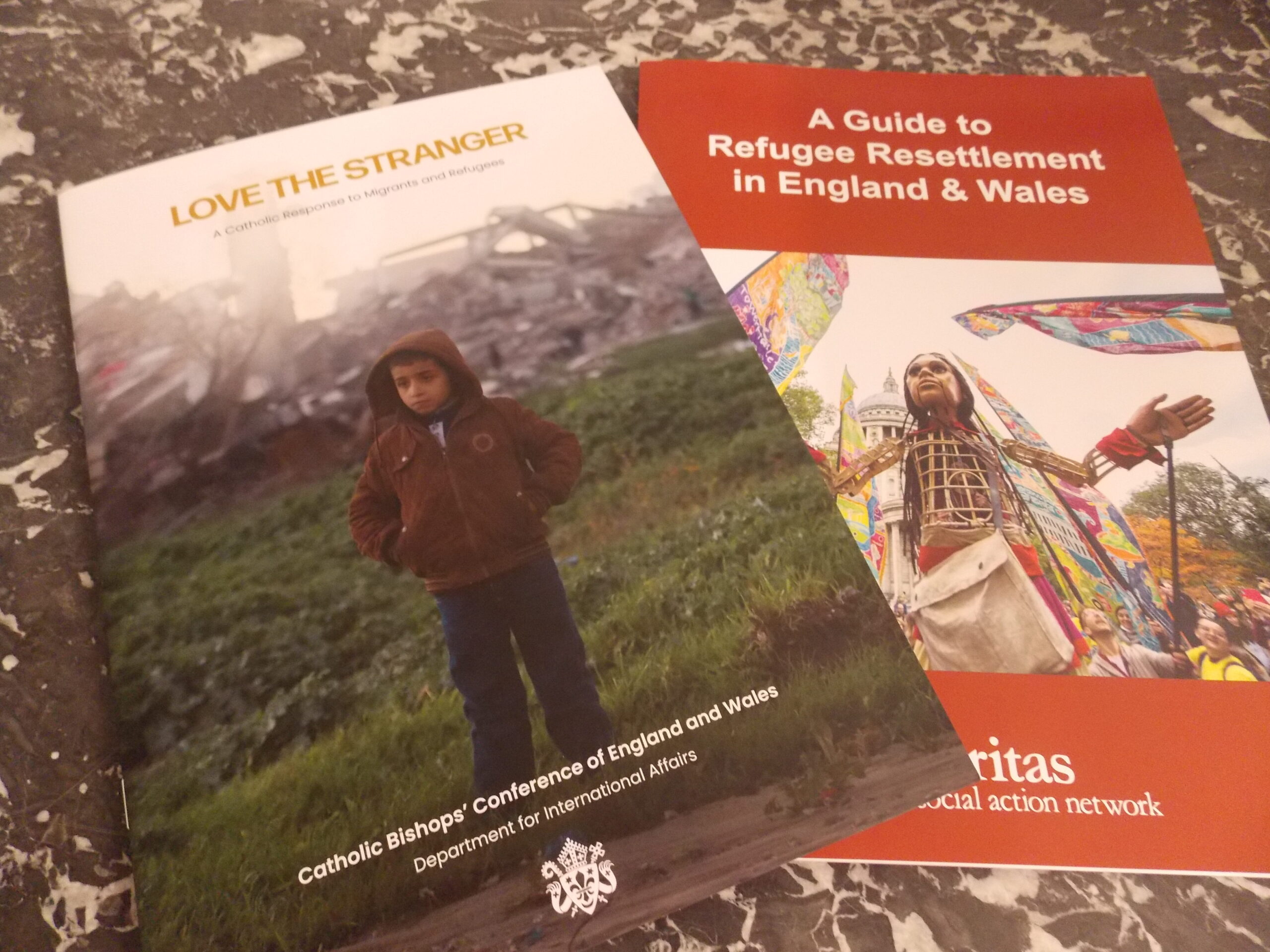
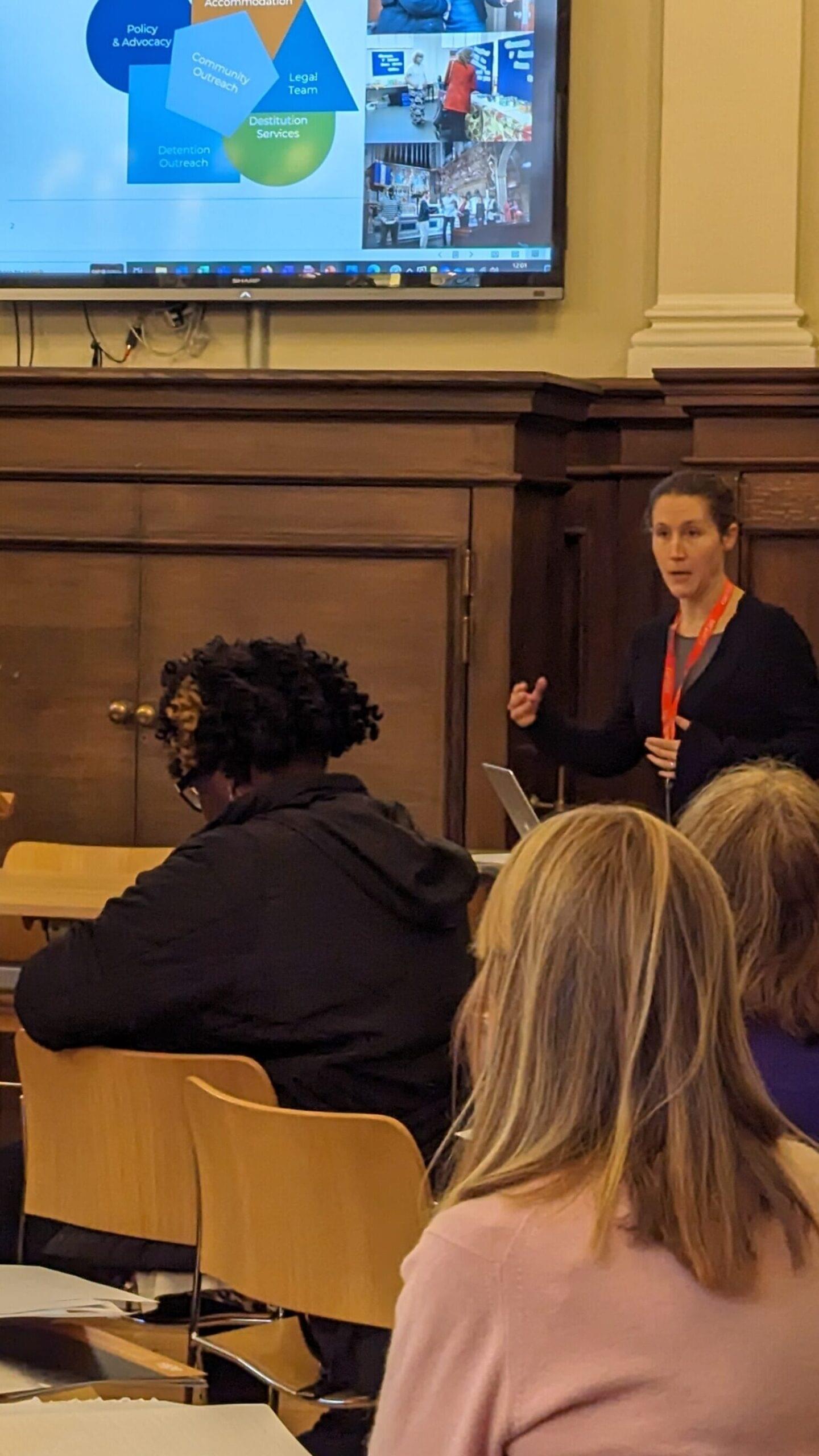
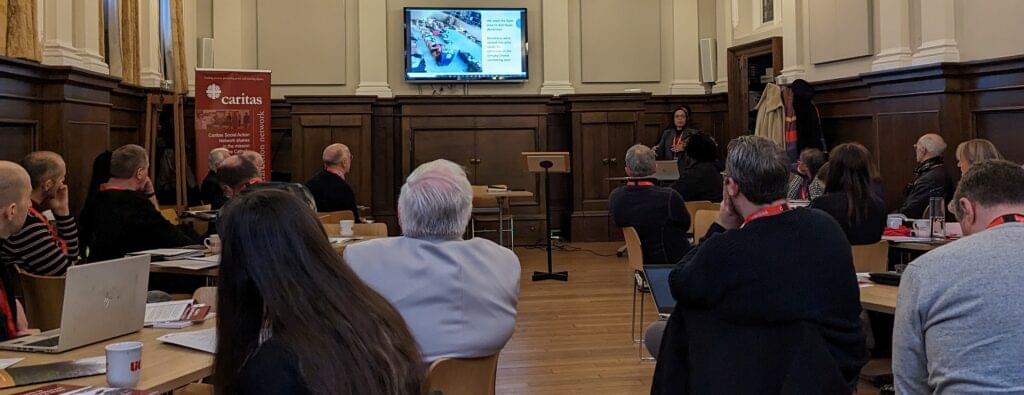
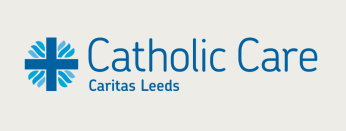


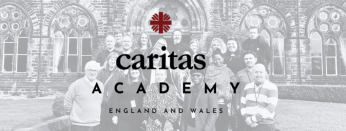


You must be logged in to post a comment.